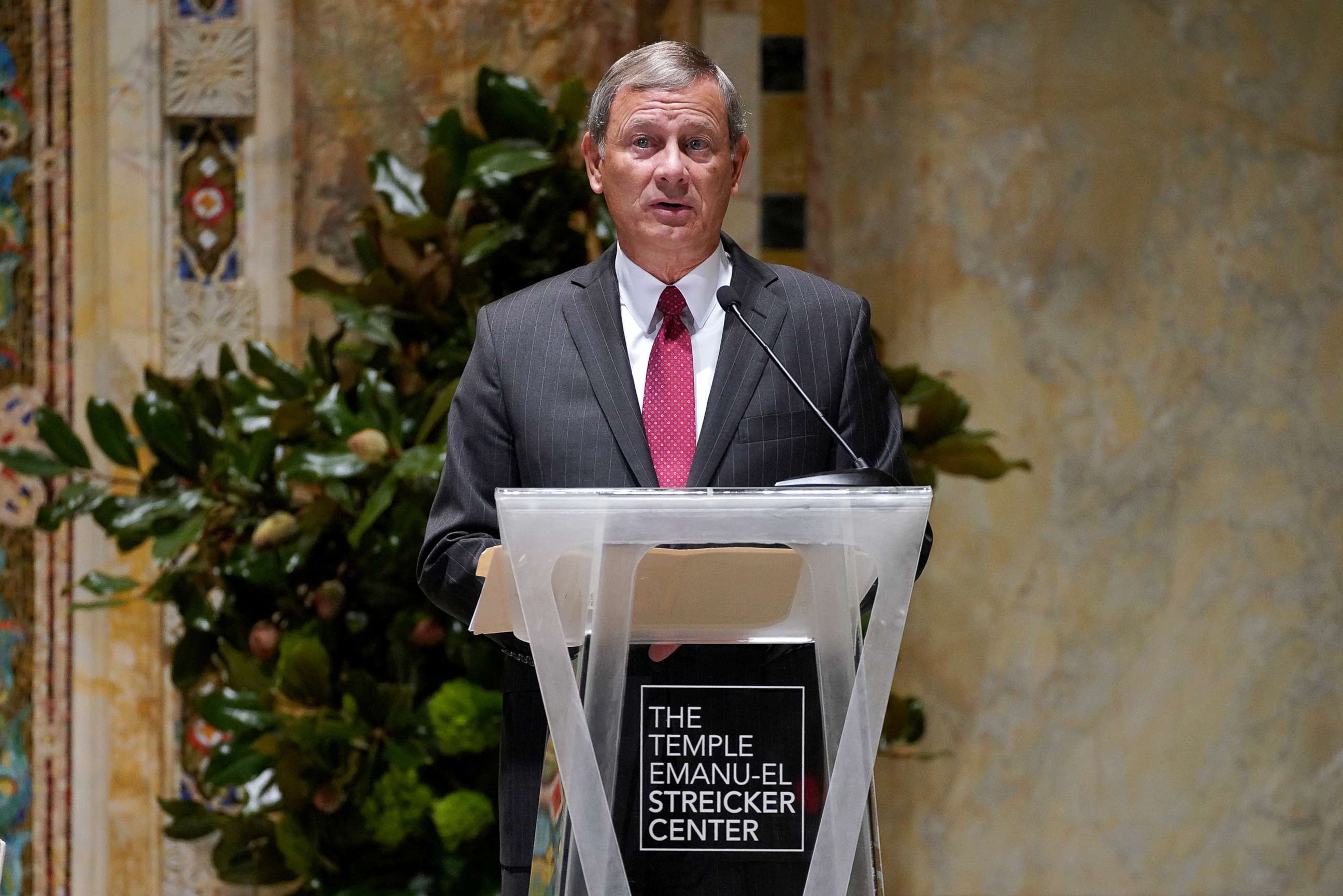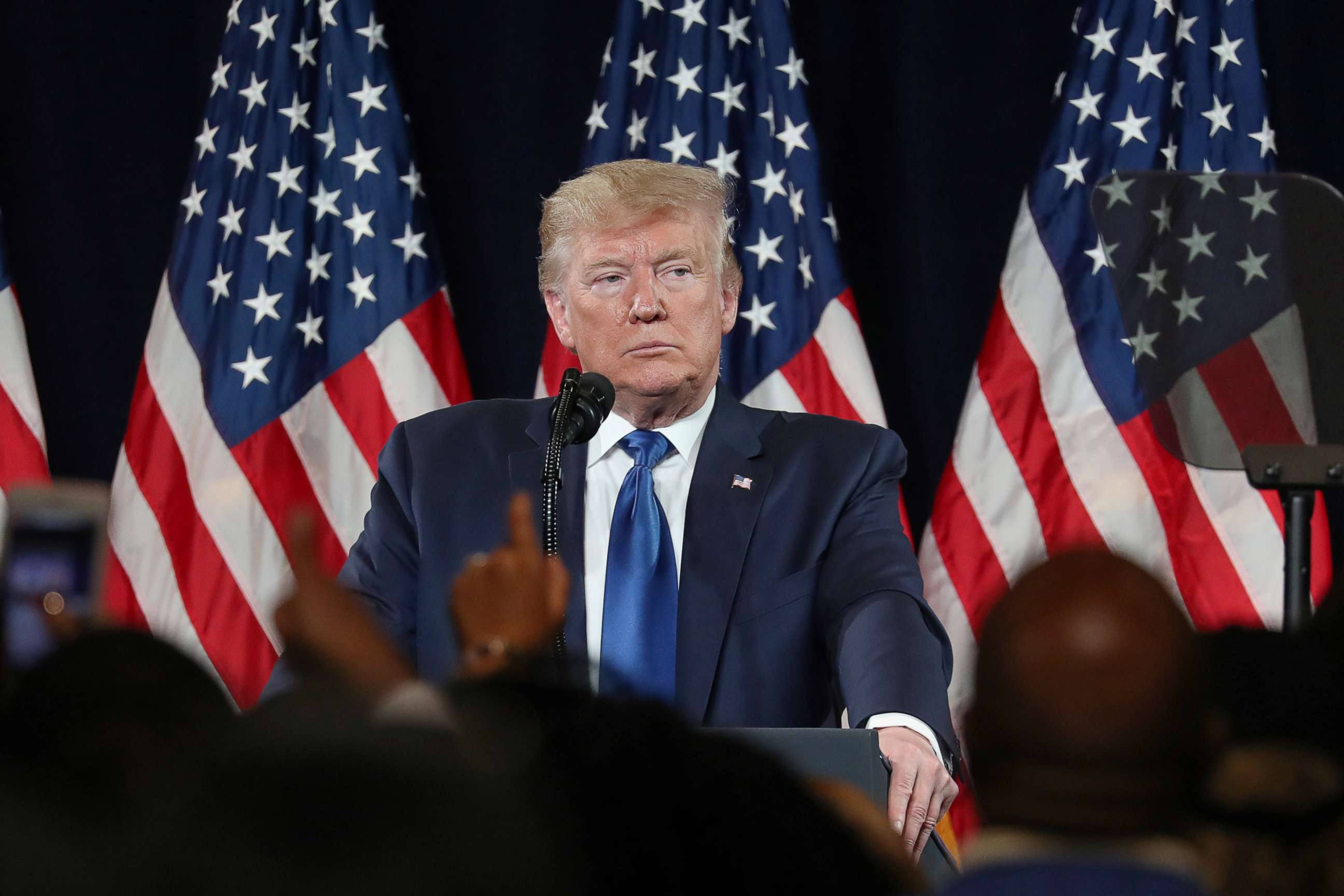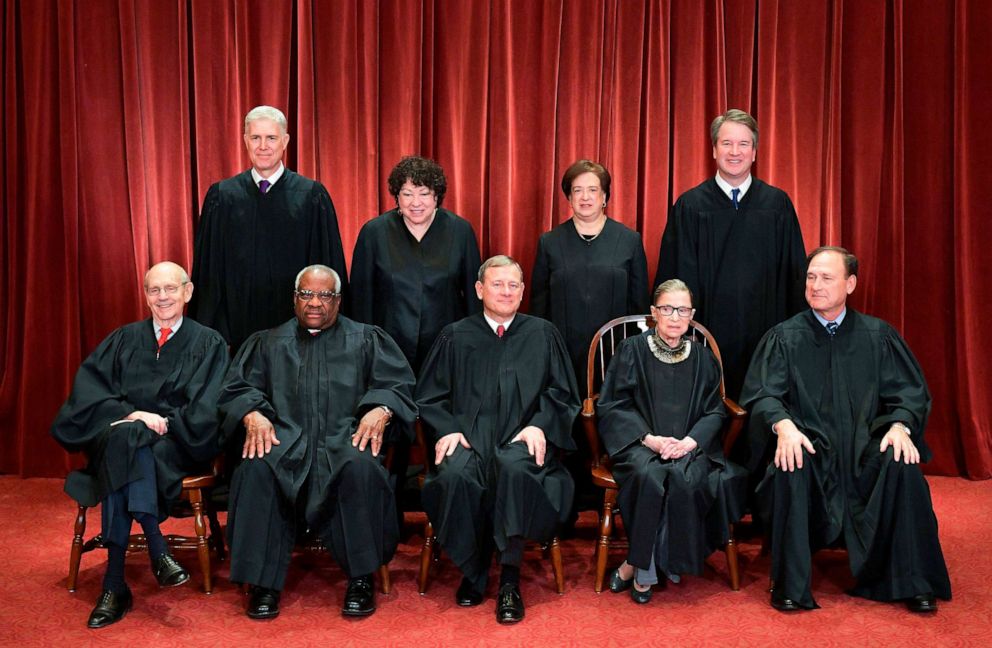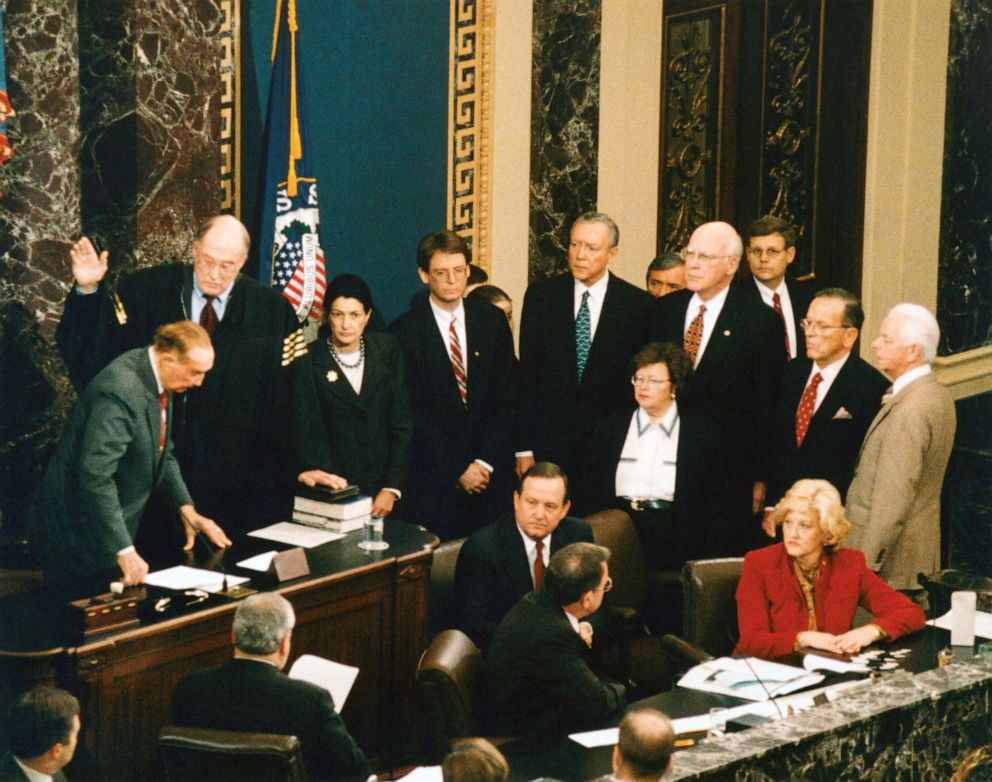Chief Justice John Roberts, who's clashed with Trump, would oversee impeachment trial
John Roberts would be third chief justice to preside over an impeachment trial.
If President Donald Trump faces an impeachment trial in the U.S. Senate, it would mark the third time in history a U.S. Supreme Court chief justice would have to preside over the affair -- but the first time for one who has clashed openly with the very president whose fate hangs in the balance.
Trump has called Chief Justice John Roberts an "absolute disaster" and a "nightmare for conservatives."
Roberts, who is constitutionally bound to oversee impeachment trial proceedings, has publicly chided Trump for criticizing federal judges.
"We do not have Obama judges or Trump judges, Bush judges or Clinton judges," he said last year in a statement.

The chief justice has said nothing publicly about the impeachment inquiry or any preparations for a possible trial. A court spokeswoman has declined to comment on the record. But Roberts, now in his 15th term on the bench, is almost certainly watching developments on Capitol Hill with a wary eye.
"He well understands, at this extraordinarily polarized time, with the eyes of the whole country on him, it's urgently important that he be perceived by both sides as being entirely neutral and fair, and I'm sure that's what he's going to do," said Jeffrey Rosen, a constitutional scholar and CEO of the National Constitution Center who has interviewed Roberts.
"They have their job to do, and you have to recognize that," Roberts said of Congress and the White House in a September speech on the same day House Speaker Nancy Pelosi opened Democrats' formal impeachment inquiry into Trump. "In our branch, our job is to interpret the law and ensure compliance with the Constitution."

Roberts, who famously compared his role as a justice to a baseball umpire calling balls and strikes, would be tested like never before. He has no experience as a trial judge, and he's assiduously sought to avoid the very type of political spectacle he'd have to oversee.
"I don't think you feel any extra pressure because of the president's attack, but Roberts will be reinforced in his determination to uphold the ideal that he cares about," Rosen said. "He feels passionately about the need for the courts to be perceived in a nonpartisan way; he's said it ever since he was appointed as Chief Justice."
All signs suggest Roberts intends to remain religiously focused on the court's docket -- some 896 cases so far this term -- and seek to avoid disruptions to the court's business at all costs.
The justices are currently weighing decisions on employment discrimination against gay, lesbian and transgender Americans; Trump's elimination of Deferred Action for Childhood Arrivals, or DACA; life sentences for juvenile offenders; gun rights; and abortion.
An impeachment trial would force Roberts into a delicate balancing act, splitting time between deliberating on cases and deliberating on the fate of the president -- both significant and high-stakes.
The best scenario for Roberts would be for a Senate trial to occur during one of the court's planned recesses in either late December into early January, or late January into early February. But conflict between scheduled court sittings and impeachment proceedings might be impossible to avoid.
President Bill Clinton's Senate impeachment trial ran from Jan. 7 to Feb. 12, 1999, including several days when the Supreme Court was in session.
"Chief Justice (William) Rehnquist would hear argument on the east side of the street in the morning from 10 to 12, then cross to the other side to preside in the Senate, in some cases well into the night," said Neil Richards, a former Rehnquist clerk during the 1999 impeachment trial of Clinton.
If Roberts is unable to preside at a scheduled court sitting, Justice Clarence Thomas would manage the session as the senior member of the bench. Roberts would still be allowed to vote in cases before the court, but would have to do so based on legal briefs and transcripts of the oral arguments.
"A judge who's a good manager of his time should be able to work harder at night and catch up on the regular work of the term," said Eric Claeys, a former Rehnquist clerk during the 1995-1996 term.

Despite the complicated schedule, involvement of the chief justice in an impeachment trial will add solemnity and an air of impartiality, which the founding fathers intended, political historians said.
"The chief justice is in the chair. And senators are not allowed to speak. So, that's the way it will be handled in the Senate," Senate Majority Leader Mitch McConnell said of the process earlier this month.
If his Supreme Court sessions are any guide, Roberts' style at trial would be punctual, formal, polite but firm, not afraid to show a sense of humor or to challenge colleagues when he doesn't agree.
He would be tasked with moderating the impeachment proceedings, setting the pace, authorizing senators to speak or stop speaking, and would decide on motions and admissibility of evidence. During questioning of any witnesses, the chief justice is the conduit for senators to submit their queries in writing, according to Senate rules.
"Experts in Senate procedure will no doubt offer him advice," said Richards, "but the calls he makes are subject to reversal by the other 50 people in the room. He can make a ruling and 50 other people can overrule him."
In the event a vote is called and there's a tie, the chief would break it.
"He would try to be even more neutral than Rehnquist, if possible, and Rehnquist was almost completely neutral," said Rosen. "He consulted a Senate parliamentarian before making many of his rulings and Roberts might do the same."

During the Clinton impeachment, Rehnquist made just one notable substantive ruling. When a senator objected to another's characterization of the lawmakers as "jurors," Rehnquist upheld the objection and said they were sitting as a court.
Rehnquist refused to weigh in on excluding evidence or limiting debate, instead deferring to senators for backroom negotiations or a simple majority vote to resolve a question.
"He presided, but it was the Senate's trial," Claeys said. "His job was mostly a ceremonial one."
During a trial, Roberts would receive a temporary office off of the Senate floor and be allowed two aides seated beside him in the chamber. Rehnquist always had one of his three clerks present along with his Administrative Assistant James Duff, who is now the director of the Administrative Office of the U.S. Courts, Richards said.
Roberts' reputation as an institutionalist suggests he would try to closely follow the example of Rehnquist, for whom he also once clerked. But scholars say the chief justice has the potential to be much more engaged in impeachment trial proceedings should he choose to be.
"This is literally an ancient and rarely used constitutional mechanism, and when things creak into life they take on a life of their own," said Richards. "Not only are careers and legacies at stake, but they are directing the future of the country. And the normal rules may not apply."




